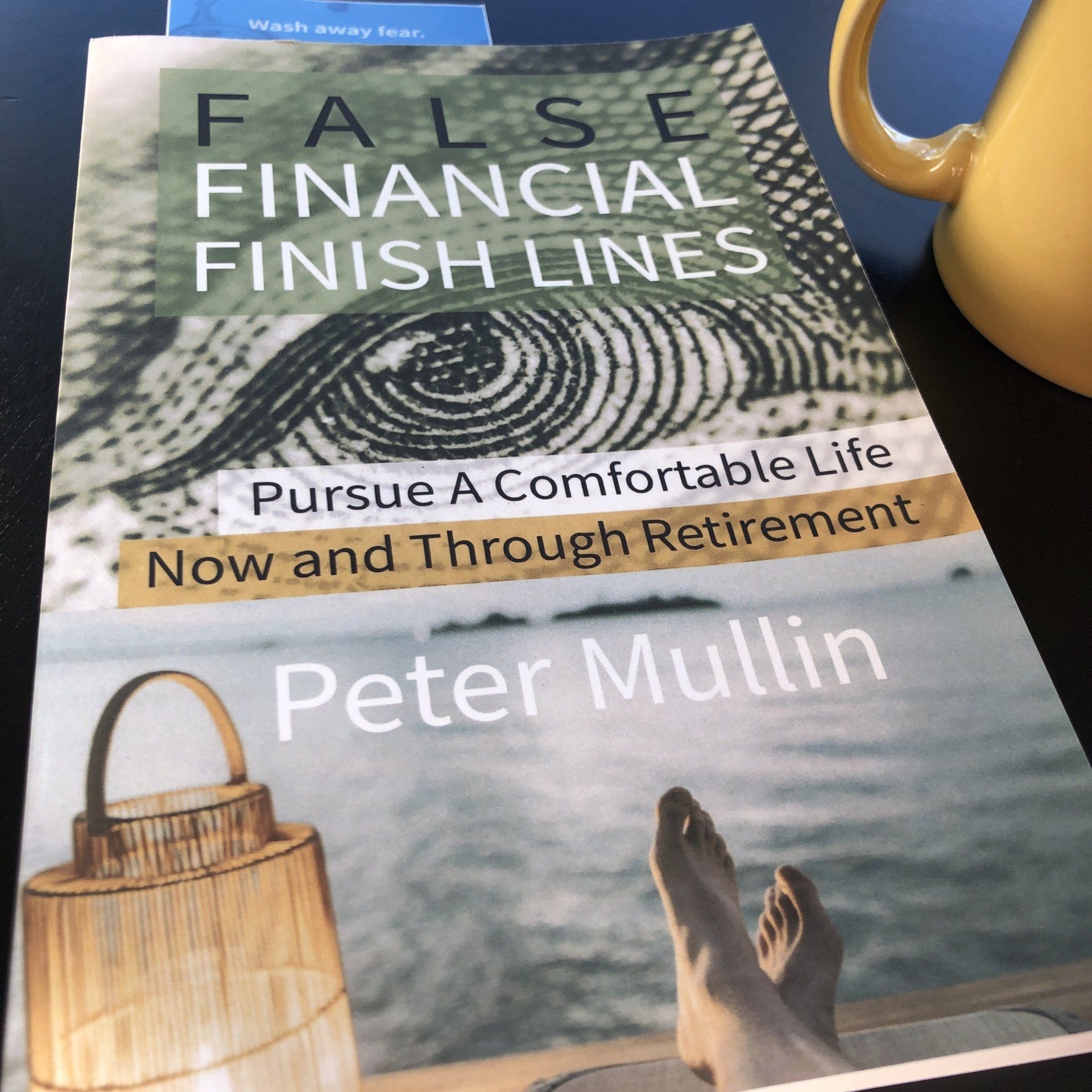DO YOU HAVE TIME TO BE WARREN BUFFETT?
Warren Buffett has so much money that he could continually drop $100 every minute for the rest of his life, and he would have billions left. In fact, he’d probably have to drop much more than $100 every minute. He would have to drop a bundle of 139 one-hundred dollar bills every minute for the next 11 years – until he is one hundred. And he’ll probably have money left.
Would you trade Warren’s net worth for your net worth? There’s one catch. You have to trade ages, too - he is turns 89 in August. The life expectancy of a man in the USA is 78.
I would not trade life expectancies with Warren for his net worth.
What about you? Maybe you would if you are 88 or older!
Your answer gives you a sense of how limited and valuable time truly is. I value spending time with my family and loved ones. When I’m away longer than one day, I miss them.
Time is finite.
And by the way, sadly, no one knows this better than someone who has lost someone very dear to them.
Time can Motivate You
Think about time and your life differently. Are your parents still around? Are you a grandparent? How often do you get to see them? Think about this - especially if you live out of state: Imagine you are (or your parents are) 70. God willing, you may live until 80 or 90 in good health.
That’s 20 more years of life. But if you see your family three times a year, and you live 20 years longer...then that’s just 60 more visits with your family. That’s 60 more cherished holidays...60 opportunities to hug them, to take photos with them, and to eat with them.
Time is valuable. Make the most of it. Make sure to create memorable moments. Fill your calendar doing the things you want to do, and with the people you love.
**Are you a client candidate? Individuals who want to take advantage of savvy tax planning solutions while looking to live comfortably should have $250,000 to invest, otherwise, I do have a great monthly rate for clients who are aspiring to accumulate $250,000 and more!**
Until next time, carry on!
***
Peter Mullin is an independent financial advisor registered through LPL Financial. He lives in Rogers, MN with his family. He was born and raised in St. Cloud, MN. Mullin Wealth Management is headquartered in Saint Cloud, MN.
The opinions voiced in this material are for general information only and are not intended to provide specific advice or recommendations for any individual.
- Mullin's take on the "4% Retirement Rule"
- Navigate "Bad Portfolio Weather"
- Tips to Optimize Social Security





Articles and Assets
What are your Priorities?
Well it’s the end of the year. I just searched on Google for “market outlook 2018.” I came up with a little over 58-million “results.”
So should you be investing in stocks in 2018? The quick answer: It’s likely a prudent part of your portfolio. But it depends on your circumstances, right?
It’s apparently popular to throw your hat in the ring.
A mantra that you hear among disciplined professionals is to “stay the course.”
Then you hear “sell high, buy low.”
Who’s right?
The relief of a disciplined strategy is that it can be tailored to you. And tailor we think you should.
Yes, it’s possible that an investor may not utilize stocks in their portfolio at all. Or you may decide to go “all in” with a diversified stock portfolio.
(Side effects from tailoring a strategy may include increased confidence & persistence, apathy toward daily market reports, and increased focus on what really matters.)
Let’s begin with the “Why” of investing for you. Then you can request 15-minutes on the phone discuss your “how.”
So “Why Should You Invest”
Life changes and our “why” of investing ought to transform with life. Some invest for sport – they like the risk/reward of investing – they’re in it for the thrill. I don’t hang with this crowd.
Most of us ought to invest for things we want. Our money & our goals are serious. By investing in a diversified portfolio we can pursue things we want.
1. Living A Comfortable Retirement: Retirement is a noun. It’s up to you to really design and live a retirement that reflects you.
2. Purchasing a Home: Home is a place to live. It can take a down payment.
3. Passing an Inheritance on to Family:
4. Student Loan Shield: This idea is important for many Millennial graduates. Student loans can dominate your budget. But instead of accelerating those payments, what if you paid your required payments, and then invested the additional money that you were going to pay against your loan balance?
5. Emergency Reserves: You probably have read that it’s prudent to keep a relative healthy amount of cash in your checking/savings. Once you’ve achieved that, then you can consider investing additional funds. Go a step further and consider a non-retirement account for you and your house. You can spend this on cars, vacations or use it just as described in #4.
The Dow Jones has seen positive results, so far, in 2017. It’s unusual and sort of uncomfortable as the independent financial advisor. Why is it uncomfortable?
What would sting & linger longer? Finding $20 in the parking lot? Or finding a $20 parking fine on your windshield?
We’ve been finding a lot of metaphorical “$20’s” (i.e. “positive results”) in our portfolios this year. So the second we find a parking fine (or a few in a row) we’ll be sure to ask if stocks are still the right place to park our money.
Complacency can work against us, Dear Clients. Just keep recalling your long-haul strategy and your “why” of investing.
***
Peter Mullin is an independent financial advisor registered through LPL Financial. He lives in Rogers, MN with his family. He was born and raised in St. Cloud, MN. Mullin Wealth Management is located in Waite Park, MN.
The opinions voiced in this material are for general information only and are not intended to provide specific advice or recommendations for any individual.
Investing involves risk including loss of principal.
There is no guarantee that a diversified portfolio will enhance overall returns or outperform a non-diversified portfolio. Diversification does not protect against market risk.
All performance referenced is historical and is no guarantee of future results.
All indices are unmanaged and may not be invested into directly. No strategy assures success or protects against loss.










